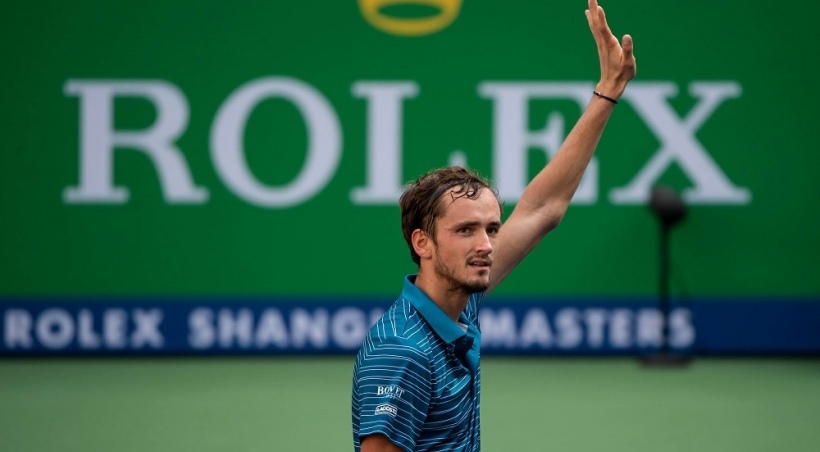 |
What a difference a year makes. Ahead of last year's Rolex Shanghai Masters, Daniil Medvedev was ranked World No. 32. While he had had a career-best year up to that point, taking titles in Sydney, Winston-Salem, and Tokyo, the Shanghai crowd barely knew who the lanky Russian was, having lost in the first round in 2017 and to Roger Federer in the second-round last year.
"I was out of top 50 for quite a long time; I would say established-out-of-top 50 player," Medvedev.
Compared to last year, Med2.0 is practically unrecognizable. He leads the tour in wins (57), has won three titles (including his first Masters 1000 in Cincinnati), made his first final at the majors, in New York, and is one win away from a sixth consecutive final, riding a 29-3 record on hard courts since July.
Everyone in the tennis world has been trying to figure out the magical formula to his meteoric rise this year. After all, his gangly frame is decidedly unmuscular, he often looks gassed, and his unorthodox groundstrokes have more resemblance to Tiger Woods than Roger Federer.
Asked this week whether there were people who doubted he could go far with his off-brand of tennis, he smiled and said: "I do think that there were such people, but usually they don't say it to me. They would say it behind my back."
While Medvedev doesn't dazzle with the best serve, groundstrokes, or volleys, what he does do is keep the ball in play, sending back flat, low shots that force his opponents to hit uncomfortable shots again, and again, and again, and again. Recalling the Golden Rule instilled into him by his boyhood coach, Medvedev recited: "The one who wins the match is the one who made more balls over the net."
"He has a very weird game. It's very sloppy, but a good sloppy," Stefanos Tsitsipas, who trails Medvedev 0-4, said. "I don't mean this in a bad way. He's just very uncomfortable to play against.
Medvedev said: "My tactic is to make my opponent suffer."
While his game hasn't changed significantly, his on-court mentality has. Where he was known for getting angry and frustrated on court, he's now much more controlled. Case in point was a third-round match earlier this week on an unusually steamy day where Medvedev found himself down a huge hole against a resurgent Vasek Pospisil. Where 2018's Medvedev would've conceded the set and moved on, the 2019 Medvedev gritted his teeth and clawed his way back to a straight-set win.
"I was down five set points, I think, and 5-2 also. I mean, usually the set is finished when it's like this, so I just try to win every point I had to face, and finally it worked out," he said.
Medvedev credits much of his improved mental strength to sports psychologist Francisca Dauzet who occasionally travels with him.
"She has helped me a lot to just be more focused on the tennis court, on the goal, basically, to win the match than on other distractions. Even when there are other distractions, to still try to have the main focus on the victory, and that's why I win so much," he said.
Dauzet's philosophy is in part inspired by the inner calm and absolute focus of China's Shaolin warriors, perhaps an auspicious portent for the 23-year-old in Shanghai.
|
|
|
|

